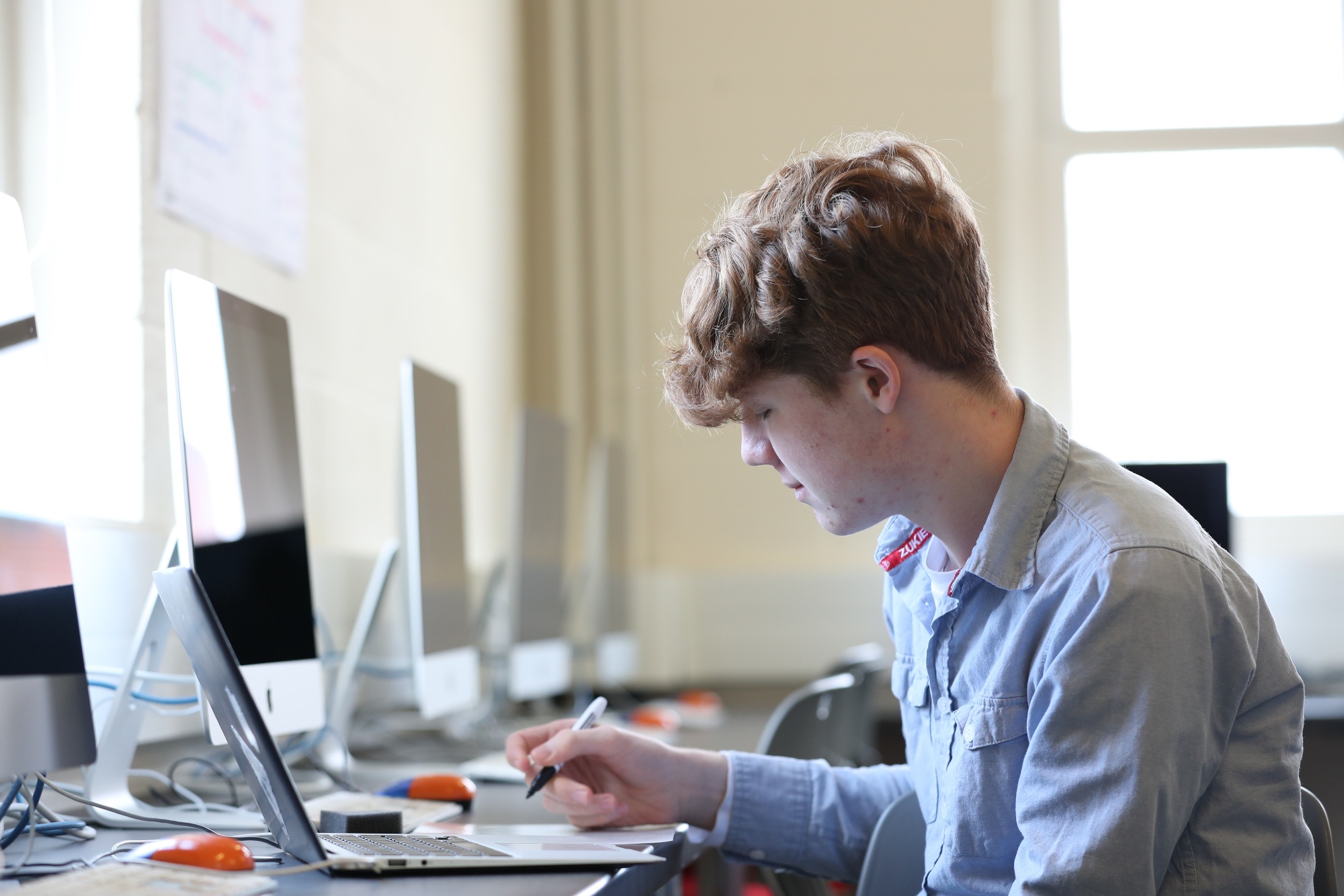Bryanston's Education Summit 2023: Not drowning but waving
In our latest blog post, Education Summit Director Stephen Davies explores the benefits of taking a day away from the cl...
Read MoreIn our latest blog post, Assistant Head (Teaching and Learning) Will Bridges shares his view on the innovation of ChatGPT and explores how ultimately, it will not be able to replace hard work, mastery, or understanding...

What impact does the latest innovation in education have on the pupils and their ability to learn? Pages are written, battle lines are drawn, and sides are picked. Debate can become heated and hotly contested. In a recent article by the New York Times, they argue that Plato was concerned about the birth of the alphabet and the impact it would have on traditional memory-based storytelling and preservation of knowledge.
I wonder if the Victorians were concerned about the proliferation of slate in the classroom. Or perhaps concerned about the rise of the pen and ink? What must mathematicians have thought about the birth of the pocket calculator on the impact of a person’s ability to do maths? Did the classrooms of the 90s shun computers or embrace them? If Plato didn’t like the alphabet, I wonder what he’d make of ChatGPT?
ChatGPT is the latest ‘innovation’ that is here to ‘transform’ education (just like every previous innovation is supposed to have done) and change teaching and learning forever. The rise of the machine means, in some quarters, an end to mastery, an end to essays and an inevitable restructuring of assessment as the machine replaces the human capacity to complete the work.
ChatGPT is an AI programme that can produce remarkable pieces of work, with remarkable speed and with remarkable outcome. It can produce articles, essays, mark work, correct spelling – you name it, it will have a go at it. For teachers, there are some real benefits. ChatGPT, alongside Artificial intelligence (AI) and other technologies have had a significant impact on education. They have the potential to personalise learning, improve student engagement, and increase accessibility to educational resources. AI-powered tools can analyse student data and adapt to their learning needs, providing personalised feedback and recommendations.

Online learning platforms and virtual reality technologies have also made education more accessible, allowing students to learn from anywhere at any time. Additionally, educational technologies such as gamification and simulation tools can make learning more engaging and interactive. However, it's also important to note that there are concerns about the potential for these technologies to exacerbate existing educational inequalities.
Technology has the ability to transform teaching and learning and support better pupil outcome. Its benefits are rooted in research and the use of technology really is the future of the classroom. A classroom where the teacher can provide immediate and personalised feedback, where tasks are personalised and differentiated to suit the needs of all learners, and where pupils are engaged and interested and challenged, are the classrooms where pupils will make the best progress.
ChatGPT, just like every other innovation is a tool that can be used by teacher and pupil alike. It might produce scaffolded essay plans, give clear and succinct arguments, and provide all the evidence you’d need to produce an essay. In future (even in some present) classrooms it may sit alongside Teams and One Note and other programmes as a means to a specific end. But the technology cannot replace hard work, mastery, understanding.
The foundation of Google didn’t end the essay, and ChatGPT won’t end the essay either. Pupils have been able to use the enriching abilities of the internet for years, but it didn’t see a collapse in our assessment structure, academic rigour, or academic integrity. Importantly, the internet hasn't undermined the importance of skills. What use is a ChatGPT produced essay on the ethics of the Rwandan immigration policy (a discussion we’ve had in Politics this term) if the pupil inputting that question knows little about Rwanda, its history, the political climate in the UK and the political imperative for action that is driving the policy forward? It would be, as Plato argued ‘a show of wisdom without the reality’.
Our responsibility as educators is to give pupils the skills they need to succeed beyond Bryanston, whilst meeting their fullest academic potential when they are here with us. AI is the future, and whether we like it or not it is going to have a significant role to play in all sectors and all industries in the future, from farming to mining to banking. Our responsibility is to ensure that our pupils know its use and its capabilities, but also know its limits. They need to be aware of the consequences of malpractice – ChatGPT really does have the potential to cause issues regarding academic honesty and integrity. But just because it has the potential to be used with malice, it doesn’t mean we should shut it down. Instead, we must show pupils how to use it, to take advantage of it. Equip them with the skills to succeed.
AI will catch up with AI and in the future, it may well be that AI will be able to detect work produced by AI. Perhaps then people might become less concerned by its use and the attention may turn to the latest innovation that will transform education. Maybe the debate will begin all over again.
Parts of this post are written by ChatGPT (with the tell-tale American spellings removed). I wonder if it is clear what is written by a human and what is written by the AI?